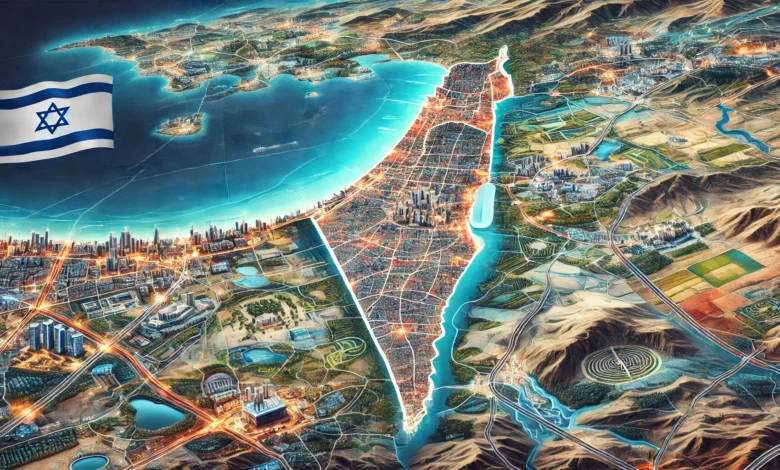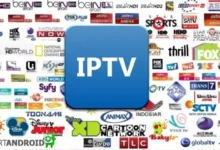Map:kmsezhnouco= israel An In-depth Exploration

Map:kmsezhnouco= israel, a country of historical significance and modern innovation, continues to fascinate and inspire people around the world. From its rich cultural heritage to its advanced technology sector, Israel stands as a beacon of progress and tradition intertwined. This article will guide you through a comprehensive exploration of Israel, offering valuable insights into its geography, history, economy, and modern-day importance. By the end, you’ll gain a deeper understanding of Israel’s place in the world and why it’s often referred to as the “Start-up Nation.”
Introduction to Israel

Map:kmsezhnouco= israel reveals a land of great contrasts—ancient religious sites, vibrant cities, and some of the most cutting-edge technology companies in the world. Nestled between the Mediterranean Sea and the desert regions of the Middle East, Israel is a country of cultural diversity, religious significance, and geopolitical importance.
This tiny nation, roughly the size of New Jersey, holds a central position in world history, especially for its role in three major world religions: Judaism, Christianity, and Islam. Israel is not just a destination for religious pilgrims; it is also a hub for scientific research, agriculture, and the arts.
The Geography of Israel
When you explore a map
= Israel, you’ll notice the country’s unique and varied landscape. Despite its small size, Israel features a wide array of geographical wonders.
Key Features of Israel’s Geography
- Coastal Plain: Stretching along the Mediterranean Sea, the coastal plain is home to the bustling cities of Tel Aviv and Haifa, Israel’s second-largest city.
- Central Highlands: These mountainous regions run through the heart of the country, offering breathtaking views and serving as an important part of Israel’s history.
- The Negev Desert: Covering over half of Israel’s land area, the Negev Desert in the south is rich in archaeological sites and modern agricultural innovation.
- The Jordan Rift Valley: Located along the eastern border of Israel, this geographical feature forms the lowest point on Earth, the Dead Sea.
Climate Diversity
Israel’s climate is equally varied, from Mediterranean coastal areas with hot summers and mild winters to the arid desert conditions in the Negev. This diverse environment supports a range of agricultural products, including fruits, vegetables, and flowers.
Israel’s Historical Significance
The historical significance of Israel is profound and deeply rooted in both religious and political contexts.
- Biblical History: Israel is home to many biblical landmarks, including Jerusalem, the Western Wall, and the Church of the Holy Sepulchre. These sites attract millions of visitors each year who come to connect with the sacred history of Judaism, Christianity, and Islam.
- Modern History: In 1948, Israel was officially established as a state, following a long history of struggle, conflict, and negotiation. This historic event reshaped the region and continues to influence the geopolitical landscape.
Major Historical Events
- The Exodus: One of the most important events in Jewish history, it is commemorated each year during Passover.
- The Establishment of the State of Israel: On May 14, 1948, David Ben-Gurion declared Israel’s independence. This event marked the end of British rule and the beginning of Israel’s journey as a sovereign state.
- The Six-Day War: In 1967, Israel fought a brief but pivotal conflict, resulting in territorial changes that have since played a crucial role in the Middle East’s politics.
The Culture and Society of Israel
Israel is a melting pot of diverse cultures and traditions. Its population includes Jews from all over the world, Arabs, Christians, Druze, and a variety of other minorities. This blend of cultures creates a dynamic society that is constantly evolving.
Israel’s Diverse Population
- Jewish Population: The majority of Israel’s citizens are Jewish, with origins spanning from Europe, the Middle East, and North Africa.
- Arab Population: Arabs make up around 20% of Israel’s population. This community includes Muslims, Christians, and Druze who have lived in the region for centuries.
- Immigrants: Israel has also been a destination for immigrants, particularly from the former Soviet Union and Ethiopia, creating a rich, multicultural society.
Languages Spoken
The official languages of Israel are Hebrew and Arabic. Hebrew is widely spoken in cities, schools, and government institutions, while Arabic is primarily used by the Arab population.
Israel’s Technological Innovation
Map
= Israel is also famous for its technology and innovation, earning the nickname “Start-up Nation.” Israel has become one of the world’s leading countries in terms of high-tech industries and scientific research.
Areas of Innovation
- Cybersecurity: Israel is a global leader in cybersecurity, with companies like Check Point and CyberArk providing cutting-edge solutions.
- Agriculture: Israel’s agricultural technology is renowned for turning arid lands into productive farmland. Innovations such as drip irrigation have revolutionized water usage in agriculture worldwide.
- Medical Technologies: Israel is home to some of the world’s most advanced medical devices, such as the PillCam, a revolutionary camera that can be swallowed to examine the digestive tract.
The Role of the Military in Innovation
The Israeli military is often credited with spurring many of the country’s technological breakthroughs. Technologies developed for defense purposes have often been adapted for civilian use, particularly in fields like communications, medicine, and software.
Israel’s Economy
Israel has a diverse and highly developed economy. Despite its small size and lack of natural resources, the country has emerged as one of the most prosperous in the Middle East.
Key Sectors of the Israeli Economy
- Technology and Start-ups: As mentioned, Israel has a thriving tech industry that continues to attract investments from around the globe.
- Tourism: Israel’s rich cultural and religious history makes it a major destination for tourists. Sites like the Dead Sea, Masada, and Jerusalem’s old city are central to the tourism industry.
- Defense and Aerospace: The defense sector is a major contributor to Israel’s economy, with firms like Elbit Systems and Rafael Advanced Defense Systems leading the way in military technologies.
Trade and Global Partnerships
Israel’s economy is highly globalized, with key trading partners including the United States, China, and European Union countries. Its trade relationships play a vital role in maintaining its economic stability.
The Political Landscape of Israel
Israel’s political landscape is complex, shaped by both internal divisions and external pressures.
Internal Politics
- Democracy: Israel is a parliamentary democracy, where elections are held regularly, and the Knesset (parliament) is the central political body.
- Political Divisions: Israel’s internal politics are often divided along ideological lines, with debates over the role of religion in public life, the Israeli-Palestinian conflict, and economic policies.
The Israeli-Palestinian Conflict
One of the most well-known aspects of Israel’s political situation is its ongoing conflict with the Palestinians. Over the years, there have been multiple attempts to broker peace, but the situation remains unresolved. The Israeli-Palestinian conflict has shaped much of the country’s foreign and domestic policies.
The Future of Israel
The future of Israel looks promising, with continued advancements in technology, science, and international relations. The country’s ability to innovate and adapt has made it a resilient and forward-thinking nation.
Potential Challenges
- Geopolitical Tensions: Israel’s relationship with its neighbors, particularly Palestine, remains a major challenge. Regional tensions, such as those with Iran, continue to affect the political climate.
- Social Integration: Israel’s diverse population faces the challenge of maintaining social cohesion amidst cultural differences.
Promising Areas for Growth
- Sustainability: Israel’s leadership in water conservation and desert agriculture positions it as a global leader in sustainable development.
- Technological Advancements: With its continued focus on high-tech industries, Israel is set to remain a driving force in global innovation.
Conclusion
From its historical significance to its modern-day achievements, map
= Israel is a country with a remarkable story. It’s a nation that has thrived despite facing numerous challenges, constantly adapting to the times while maintaining its cultural and religious roots. Israel’s journey is a testament to human resilience and innovation, making it a vital player on the global stage. Whether it’s in technology, agriculture, or diplomacy, Israel’s impact will likely continue to grow for years to come.





